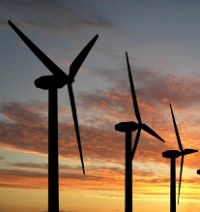

A renewables global status report has reported that last year saw record investment and implementation of clean energy. Solar, wind and hydropower sources were added at the fastest rate the world has ever seen in 2015.
According to the report, investment in renewable energy was more than double that spent on new coal and gas fired power plants. 147 Gigawatts of renewable electricity came online last year, this equates to the entire power generating capacity of Africa.
Last year was also the first time that emerging economies spent more than rich economies on renewable power and fuels. China accounted for a third of the global total, and Jamaica, Honduras, Uruguay and Mauritania were among the highest investors relative to their GDP. Countries in Africa and Latin America also set some of the most globally ambitious targets for clean energy deployment.
However across Europe investment in renewable energy fell by 21% following the withdrawal of clean energy subsidies and other policy supports. Despite this, 44% of the European Unions electricity capacity is provided by renewable energy.
Jean-François Fauconnier of Climate Action Network Europe said the report should be a wake up call, and added: "The EU is at risk of missing the ongoing energy revolution and lagging behind other leading economies for decades."
The UK experienced a rise of 25% in renewables investment last year, however due to cuts to solar subsidies and a decrease in onshore wind planning approvals, this trend may not continue.
It is estimated that over eight million people worldwide are now employed in the renewable energy industry. This was a 6% growth in jobs in 2015 alone. During this time, jobs in the oil industry are believed to have fallen by 18%.
There are still challenges facing the renewable energy industry. The chair of REN21 who published the report, Arthouros Zervos, commented: "The renewables train is barrelling down the tracks, but it is running on 20th-century infrastructure – a system based on outdated thinking where conventional baseload is generated by fossil fuels and nuclear power."